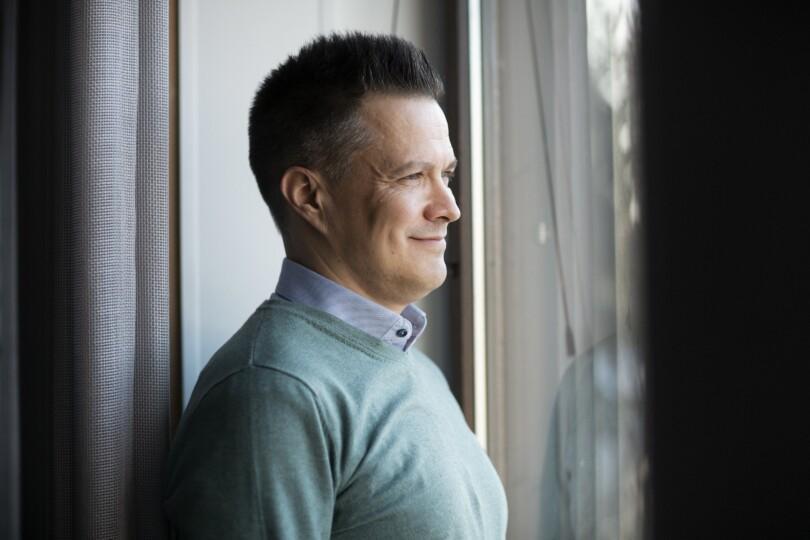Can a single phone call help?

Visa Kuusikallio works as a Team Manager in MIELI phone and online crisis work.
When life takes sudden turns or unexpected events become overwhelming, thoughts start looping endlessly and there seems to be no way out. When you’re alone, worries can easily grow out of control. Different times of day, as well as holidays and festive seasons, can also cast a heavier tone over the experience.
What a person in crisis needs above all is to be genuinely seen and heard by another human being at the right moment. When anxiety takes over, it can be difficult to make sense of one’s feelings. Having someone who is simply willing to listen is often more important than receiving advice or solutions. Once the most intense emotions begin to ease, people often discover their own capacity and ways to cope within themselves.
A single encounter cannot resolve a crisis, but it can relieve feelings of helplessness and loneliness and help restore hope.
Experience shows that just having the chance to speak about what’s troubling you can bring a sense of relief. When someone truly listens, emotions no longer weigh on the mind and body as heavily as they do when you are alone. Being heard and taken seriously helps clear the mind and strengthens your ability to see possibilities and make thoughtful choices.
Simply being in contact with another person in MIELI Crisis Helpline can be a relief for the caller as they don’t have to carry their burden alone. Just having someone listen and be present can help calm the mind and restore faith that it is possible to get through the difficult situation, one step at a time. A positive encounter with a crisis worker or trained volunteer can also encourage a person in distress to seek longer-term support.
MIELI Crisis Helpline offers support in life’s most difficult moments
MIELI Crisis Helpline has existed for over fifty years for these kinds of encounters. It was originally established to help prevent suicides based on the idea that sometimes another person is not readily available, and some matters are not easy to talk about with those close to you. Thoughts of self-harm or difficult past experiences weighing heavily on the mind require an anonymous and safe space to be spoken aloud. The helpline is available in English on Mondays from 4 pm to 8pm and on Thursdays and Fridays from 9 am to 1 pm. Calls are answered by a crisis support professional or a trained volunteer supported by professionals. Conversations are always anonymous and confidential.
Crisis Helpline is a place where you can feel heard and accepted as you are.
Every day, hundreds of conversations take place on the crisis helpline. People talk about their fears and anxiety, and sometimes they wonder how they will make it through to the next day. In an increasing number of calls, suicidal thoughts are also discussed openly. When there is a risk of self-harm, the helpline worker encourages the caller to reach out to loved ones or the authorities. This shows that, in addition to offering a listening ear, the crisis helpline is also an important part of the safety net for many people.
The crisis helpline is a place where you can be heard just as you are—without demands, without having to explain yourself, and without needing to know in advance what to say. In a difficult moment a person is not alone with their distress. This can be the first step toward calming the mind and reconnecting with oneself and with others.
That’s why it’s important that as many people as possible know about this opportunity. If you or someone close to you find yourself in a situation where nothing seems to help, remember: the helpline is there to answer your call. A single conversation can be enough to ease a moment that might otherwise feel impossible to bear alone.
MIELI Crisis Helpline in English
MIELI Crisis Helpline is available in English on Mondays (4 pm to 8 pm) and Thursdays – Fridays (9 am to 1 pm) at 09 2525 0116.